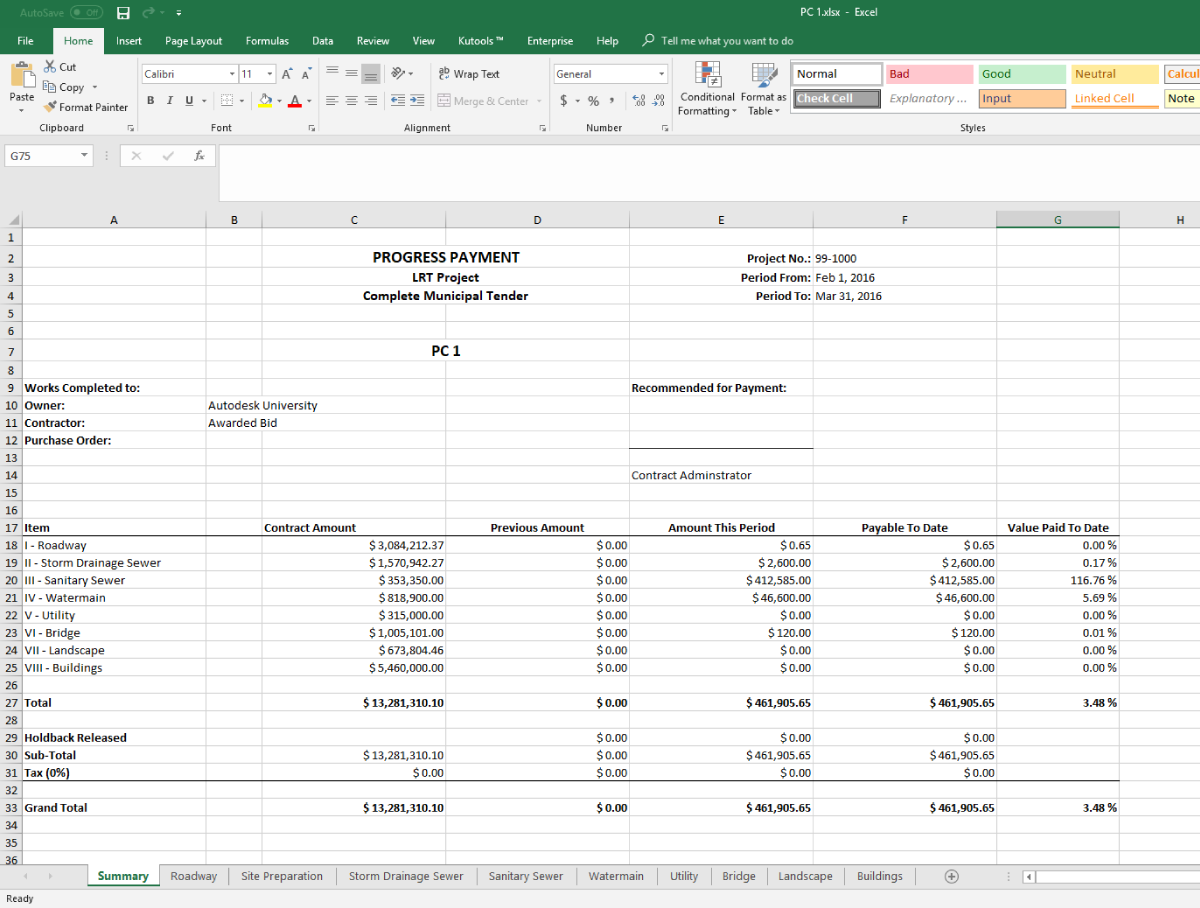The Ontario government is cracking down on the persistent problem of late payments in the construction industry with its new Prompt Payment Act. If you’re an owner who is repeatedly late paying your contractors or a contractor who fails to pay subcontractors by the payment due date, it’s time you understood the consequences of failing to comply and how you can avoid them—before the law goes into effect October 2019.
“Under the new law, the project owner must pay a contractor’s invoice within 28 days, unless the owner has disputed the invoice within 14 days of receipt,” says John Montgomery, LL.B, partner at Johnston Montgomery Barristers & Solicitors in Whitby, ON. “This means owners will have no more than two weeks to review the work being invoiced and prepare detailed deficiency reports and a notice of dispute that sets out all of the reasons for not paying. These regulations will have a huge impact on the construction and civil engineering industry here in Ontario.”
John’s firm specializes in construction law and is currently representing a contractor in a multi-million dollar case against a large construction company over a payment dispute. “When a contractor isn’t paid, the trickle-down effect is substantial whereby subcontractors aren’t paid and in turn, paycheques are late or someone gets laid off,” says John.
Once the Prompt Payment Act comes into effect, contractors will have seven days from the day they receive payment to pay their subcontractors. Alternatively, contractors must notify subcontractors within seven days of receiving notice of a dispute from the project owner. Failure to pay contractors or subcontractors will result in adjudication, with interest accruing at the contractor-specified rate.
“These timelines are tight but designed to address an unbearable industry problem,” says John. “Project owners and contractors will need to reinvent operations in order to ensure compliance.”
Why so late?

Even the most well-meaning owners have trouble getting payments out on time. Inaccurate field reporting, missing pay items and simple invoice format errors can all lead to payment delays. Disputes can take weeks—or even months, to resolve. In the meantime, frustrations mount, projects are stalled and someone misses a mortgage payment.“In payment dispute cases, the most challenging part of our work as a legal team is sourcing and sifting through documentation—months or even years after a project has been completed,” says John. “In addition to missing or incomplete field notes, we often find discrepancies between work orders, the actual work completed and inspection reports.”Even with the Ontario government stepping in to mandate that everyone get paid on time, project owners and contractors will need to fix the underlying problem causing the payment delays: disconnected and disjointed contract administration workflows.
How to Pay and Get Paid on Time
For those businesses who want to comply, they must start doing things differently to address the root of the problem. As the saying goes, “Nothing changes, if nothing changes.”Adopting a standardized approach to key contract administration workflows like field inspection reporting and progress payment certificates is one way to avoid errors that can lead to costly delays. A contract administration platform can actually leverage data like awarded tender items directly from the tender all the way through to daily reports and payment certificates.“Most of our clients come to us to automate key processes like field inspection and reporting,” said Chris Stebbing, P. Eng., Director of Platform Development at Builterra. “When we show them how easy it is for inspectors to abandon their coffee-stained field notebooks and the hours spent copying and pasting into Excel in favour of a mobile app and cloud-based solution, they’re sold.”With the Builterra platform, field inspectors, project managers, engineers, contractors and owners are saving time, money and frustration by adopting a solution that reduces reporting time, improves report accuracy and expedites payment approvals.“The Builterra app has eliminated all that time we spent running around getting signatures and contractors get paid faster too—everyone’s happier,” said Chris Singh, Inspector, WSP, Toronto.With Builterra, payment certificates are automatically generated based on actual inspected values so not only is the margin for error significantly reduced but payment approval time is cut dramatically.


Builterra produces a payment certificate and corresponding spreadsheet with ease
"Being able to view and add contract items on the fly from your phone is incredible,” said Eric Costa, Engineering Construction Inspector, City of Waterloo. “ Daily inspection reports have become streamlined and payments have become easier with all of the information in one place.”
Get Ready Before October 19th, 2019
The 2018 construction season is coming to a close and the off-season is the ideal time to get your office in order and adopt new workflows that will facilitate prompt payment.
“Whether business owners implement a platform like Builterra or focus on another aspect of their operations, it’s imperative that changes are put in place before it’s too late,” said John. “Failing to comply with the new Prompt Payment Act increases the risks for litigation, penalties, job loss and a host of other consequences.”
To learn more about the Prompt Payment Act, its impact on your business and the Builterra platform, watch our insightful webinar:





